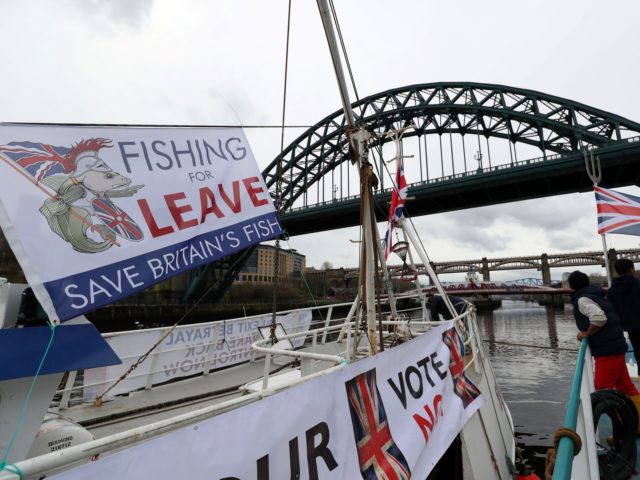On Sunday, Prime Minister Boris Johnson said that the United Kingdom will ban EU factory ships from electric pulse trawling in British waters as a first step in taking back control of Britain’s fisheries.
In an interview on the BBC’s Andrew Marr Show, the prime minister cited the UK’s ability to ban the practice of pulse trawling by large ships from the EU as a victory for Brexit Britain.
Mr Johnson also said that the UK will seek to ban “these huge hoover trawlers that come in and hoover up everything on the bottom of the sea”.
The ban on electric pulse trawling came into effect on 11 pm on New Year’s Eve as the UK finally left the European Union after years of negotiations and delays.
The practice of pulse trawling involves ships sending electric shocks into the seafloor in order to scare up bottom-dwelling fish, such as sole, out of their burrows, thereby making them easier to catch.
The Dutch-pioneered practice has long been a concern of British fishermen, with Arron Brown, a spokesman for the Fishing for Leave campaign, saying in 2018: “It’s not just electrocuting fish, it’s electrocuting all the other marine life around it, and that’s killing the feeding; it’s killing the [other] fish.”
“People are retrieving fish with their insides burst out; their backs broken — it is a horrific way of catching fish, done to try and keep an inefficient Dutch industry going,” Brown added.
In response to the ban, the Pacific and Environment Minister Zac Goldsmith said: “There have long been serious concerns about pulse fishing, so it is fantastic news that we have been able to end pulse trawling in UK waters by EU and English vessels, safeguarding our marine environment for future generations.”
“This is just one of the good things we can do to benefit our precious marine environment, now that the Transition Period with the European Union has ended,” Mr Goldsmith continued.
Before the UK’s official departure from the European Union, Britain was bound by the bloc’s Common Fisheries Policy (CFP), which classifies national fisheries as a so-called “common resource”.
While some have claimed that the UK would be able to ban pulse fishing prior to Brexit as the EU officially banned the practice itself, the bloc has permitted ships to continue to do so for “research” purposes, a similar justification to how Japan continues whaling, as former Brexit Party MEP Brian Monteith pointed out on social media.
The government is also reportedly looking into banning European supertrawlers in general from fishing in British waters, as they are believed to be responsible for the deaths of many British dolphins, according to sources speaking to The Telegraph.
European supertrawlers actively fished for 3,000 hours in UK marine protected areas in 2019, with over 1,000 porpoises dying in their nets.
In conjunction with the ban on super trawling, the UK government would also seek to require all medium to large-sized fishing vessels to instal remote-monitored CCTV cameras to ensure that they are not catching any endangered species.
While the decision was hailed by the environmental activist group the Blue Planet Society, the pressure group cautioned that it is “early days so let’s see how this pans out”.
On social media, the Blue Planet Society released ship tracking information showing that factory trawlers from the EU were off the coast of the English coast city of Brighton on Sunday morning.
Follow Kurt Zindulka on Twitter here: @KurtZindulka

COMMENTS
Please let us know if you're having issues with commenting.